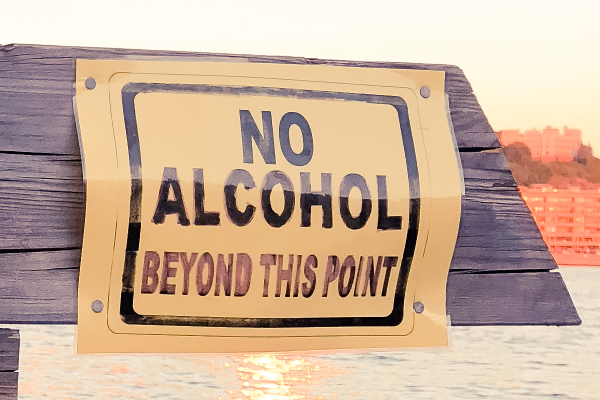October 10th is World Mental Health Day and Law Student Mental Health Day. The legal profession is uniquely challenging to mental health — law students, lawyers, and judges need to know how to find the right help.
Highlighting the importance of proactivity in mental health, the American Bar Association now celebrates Law Student Mental Health Day on the same day the World Health Organization has declared World Mental Health Day. The ABA has resources for organizations in the profession to better support well-being, including a Well-Being Pledge for legal employers, law schools, and government agencies and a Well-Being Toolkit for lawyers and legal employers. A report on the ABA’s Law Student Wellness Survey highlights best practices for law schools to support well-being.
While stakeholders continue working to improve conditions in the legal profession, individuals always are responsible for taking care of themselves. Find tips on practicing self-care properly as an individual in the legal profession here. We’ve also compiled a number of resources for law students in this post on beating bad odds for mental health, including the ABA’s new podcast.
Of course, the biggest obstacles to taking proactive mental health measures are stigma, fear, and shame. Working against stigma, the ABA recently launched a video campaign to encourage lawyers, law students, and judges to get support, featuring lawyers, two law students, and a judge who share their stories about recovering from depression, anxiety, alcoholism and drug addiction — and the vital importance of asking for help. Watch the video FEAR NOT: SPEAKING OUT TO END STIGMA here.
Lawyers, law students, and judges in Massachusetts can schedule a Free & Confidential consultation with one of our staff clinicians.
Find more on scheduling here. While our organization can only offer a limited number of counseling sessions as a service, often clinicians recommend an outside referral after a series of sessions with a client. Finding the right therapist can be challenging, particularly given health insurance coverage.
If you haven’t spent much time in the mental health services world, you may think that therapy is a relatively unitary phenomenon. Of course, one can generally assume that it will involve speaking openly, and in guaranteed confidence, about matters that one might not discuss at length with friends or even family, and that the notion of recognizing feelings is usually a part of what goes on. But if you were to see a few different therapists (not at the same time, please), you might have a few very different experiences. Therapists vary in both (a) technique and (b) style/personality.
Unfortunately but necessarily, often the first step in choosing a provider for an external referral is to review of the individual’s managed care provider list. Our clinicians can offer the best potential matches when they know therapists on the list, which they make an effort to find. Individual therapist factors like personality, attitude, race, and gender are often factors that contribute to a good fit. One of the reasons why coming to LCL for a referral is usually better than simply selecting one from a list is that our clinicians make an effort to match them with clinicians with whom we have some experience or have at least acquired relevant information.
From there, it’s helpful for clients to be aware of the differences between various forms of therapy. The most basic distinction is between cognitive-behavior and psychodynamic — but there are also a number of techniques in which some therapists have specialized training, most of which have their own paradigms for conceptualizing problems and mechanisms of improvement. Most of the literature comparing psychotherapy options focuses on the treatment model. Studies that get published virtually always purport to show that one therapeutic modality is superior to another (or to a no-treatment condition) for a given kind of problem. It’s worth learning about various techniques, which range from highly focused on measurable variables and “evidence-based” (currently a very trendy term in treatment circles) to “out there” techniques that might involve, say, put crystals under your bed or tapping parts of your body. Our licensed clinicians can help you distinguish among these techniques. Each of them tends to be extolled and found effective in studies by their own practitioners (kind of like medications in studies by pharmaceutical companies).
What is often ignored is that therapy success is determined more by the individual therapist than by his or her technique or treatment model. Another perspective making the same point is that the relationship between therapist and client/patient is of key importance. A former classmate of mine, now a renowned psychology professor, reminded me about this at a recent reunion — it’s not a new finding, but keeps turning up in new ways every several years. It probably isn’t even limited to therapists – there is also a growing literature on patients’ reactions to medical providers based on their quality of concern and attention.
When seeing a therapist, people generally want to feel that they are heard and understood, and that the therapist can be trusted with confidential information, often including information that has never been disclosed before. What makes a therapist effective with a particular patient/client is not adherence to a particular treatment method; it is something about the person and the relationship that eludes definition but that clearly includes empathy and a sense of collaboration. Although technique does not seem to make a crucial difference, it seems to be important for both the helper and help-seeker to agree on their goals, to share information and expectations, and to collaboratively work toward and monitor progress. The Rogerian school of therapy, no longer particularly in vogue, seems to have correctly identified that, most importantly, a useful therapist conveys a combination of empathy, genuineness, and warmth (or unconditional positive regard).
While the particular therapist you see makes more difference than the technique or orientation, we still advise that you avoid fringy, zany-sounding techniques and unlicensed practitioners. You may have an open mind about what “out there” practices prove to be effective for you — but “therapist” is an uncontrolled term and lacking regulatory oversight, you’re on your own to recognize any undue influence you’re exposing yourself to. (“Rehab” is also an uncontrolled term — find more on how to vet centers here.)
Finding the right therapist requires balanced attention. A further complication is that recent studies suggest that patients who are harder on themselves may also find it harder to trust a therapist, or to see him or her in a positive light. On one hand, if you are to benefit from therapy, it’s worth seeking to allow yourself to trust the therapist. On the other hand, if you don’t feel understood by or connected to or trusting of a therapist after a few sessions, it may be in your best interest to consider another referral.
. . .
This post was compiled from two previous posts by Jeff Fortgang, PhD: Which is More Important — the Therapist or the Therapy? (2016) and The Right Therapist > The Right Therapy (2017). Both now redirect here.




